ADDICTION
ALCOHOL DEPENDENCE
QUIT SMOKING
ALLERGY
ANTI FUNGAL
FUNGAL INFECTION
FUNGAL NAIL INFECTIONS
ANTI-REJECTION DRUGS
ANTI WORM
ANTIBIOTIC
BACTERIAL INFECTIONS
ARTHRITIS
GOUT
OSTEOARTHRITIS
RHEUMATOID ARTHRITIS
BLOOD
LOW PLATELET COUNT
THROMBOPHLEBITIS
VARICOSE VEINS
COLON
ANAL FISSURE
PILES
ULCERATIVE COLITIS
DIABETES CARE
DIABETES INSIPIDUS
DIABETES TYPE
DIABETIC FOOT ULCERS
GLUCOSE MONITOR
EYES/EAR CARE
DRY EYES
EYE CARE
EYE EXAMINATION
EYE INFECTION
EYE LASHES
EYE PAIN
GLAUCOMA
OCULAR HYPERTENSION
UVEITIS
FEVER CARE
MALARIA
RHEUMATIC FEVER
TYPHOID FEVER
GASTROINTESTINAL
ACIDITY
CONSTIPATION
CROHN'S DISEASE
DIARRHOEA
GALLBLADDER STONES
INTESTINAL ULCERS
IRRITABLE BOWEL SYNDROME
MOTION SICKNESS
NAUSEA
Cynomycin 100 mg (Minocycline)
| Active Ingredient (Generic Name): | Minocycline |
|---|---|
| Indication: | Bacterial Infections |
| Manufacturer: | Wyeth Pfizer Ltd |
| Packaging: | 6 capsules in one strip, 4 capsules in one strip |
| Strength: | 100 mg |
From: $100.00
When considering Cynomycin 100 mg (Minocycline) as a treatment option, you might wonder about its effectiveness and potential side effects. Understanding how this antibiotic interacts with your body and the precautions necessary for its safe use is vital. Before making any decisions, it’s important to weigh the benefits against the risks, especially when it comes to long-term usage. Exploring the nuances of this medication can provide valuable insights into its mechanism of action and overall impact, allowing for informed decisions regarding your health.
Why is this medication prescribed?
If you’re wondering why Cynomycin 100 mg (Minocycline) is prescribed, it’s often used to treat bacterial infections in the skin and respiratory system. This antibiotic works by stopping the growth of bacteria, aiding your body in fighting off infections effectively. Common skin conditions like acne, along with respiratory infections such as pneumonia, bronchitis, and sinusitis, are among the ailments where Cynomycin 100 mg may be prescribed. Skin infections like cellulitis or folliculitis can also be addressed with this medication.
Minocycline, the active ingredient in Cynomycin 100 mg, belongs to a class of antibiotics known as tetracyclines. These antibiotics are effective against a wide range of bacteria that can cause infections in various parts of the body. It’s crucial to follow your healthcare provider’s instructions carefully when using Cynomycin 100 mg to ensure you complete the full course of treatment and help prevent the development of antibiotic resistance.
How should this medicine be used?
To use Cynomycin 100 mg (Minocycline) effectively, carefully follow the dosage instructions provided by your healthcare provider. Typically, this medication is taken by mouth with a full glass of water, unless otherwise directed by your doctor. It is usually recommended to take this medication once or twice daily on an empty stomach, at least 1 hour before or 2 hours after meals. Remember to swallow the capsules whole and not crush or chew them. It is essential to continue taking Cynomycin even if you start feeling better, as stopping the medication too soon could allow the infection to return or worsen.
Make sure not to take more or less of this medication than prescribed by your healthcare provider. If you miss a dose, take it as soon as you remember, but skip the missed dose if it is almost time for your next scheduled dose. Do not double the dose to catch up. If you have any questions or concerns about how to use Cynomycin, do not hesitate to consult your doctor or pharmacist for clarification.
Other uses for this medicine
You may be prescribed Cynomycin 100 mg (Minocycline) for conditions other than the one mentioned by your healthcare provider. This antibiotic medication is sometimes used off-label to treat various skin conditions such as acne vulgaris, rosacea, and perioral dermatitis. Minocycline has anti-inflammatory properties that can help reduce redness, swelling, and the number of acne lesions on the skin. It is also sometimes prescribed for certain types of pneumonia caused by bacteria, as well as for the treatment of sexually transmitted infections like chlamydia and gonorrhea. In addition, minocycline has been used in the management of rheumatoid arthritis and other inflammatory joint conditions due to its ability to reduce joint pain and swelling. It’s important to note that using Cynomycin 100 mg for these conditions should only be done under the supervision and guidance of a healthcare professional, who can determine the appropriate dosage and duration of treatment based on individual needs and medical history.
What special precautions should I follow?
Before taking Cynomycin 100 mg (Minocycline), it’s important to check for potential drug interactions with your current medications. Inform your healthcare provider about any other drugs or supplements you are taking to avoid adverse effects. Being proactive about this precaution can help guarantee the safe and effective use of Cynomycin.
Check for Drug Interactions
When taking Cynomycin 100 mg (Minocycline), be sure to carefully check for any potential drug interactions.
- Consult your healthcare provider: Always consult with your doctor or pharmacist before starting any new medications.
- List all your current medications: Make a list of all prescription and over-the-counter medications, as well as any supplements or vitamins you are taking.
- Inform about your medical history: Inform your healthcare provider about your medical history, including any allergies or past drug reactions.
- Research interactions: Research potential interactions online or using drug interaction checkers.
- Monitor for side effects: Be vigilant for any unusual side effects when starting a new medication while on Cynomycin 100 mg.
What special dietary instructions should I follow?
To optimize the effectiveness of Cynomycin 100 mg (Minocycline), consider incorporating dietary adjustments as recommended. When taking this medication, it is advisable to avoid consuming dairy products, antacids, vitamins/minerals containing iron, and products with magnesium or aluminum, as they can decrease the absorption of minocycline in the body. Additionally, it is important to take Cynomycin with a full glass of water to prevent any irritation to the esophagus. It is best to take this medication on an empty stomach, at least 1 hour before or 2 hours after meals, unless instructed otherwise by your healthcare provider. Maintaining a consistent schedule for taking Cynomycin can also help ensure its effectiveness. Be sure to follow the instructions provided by your doctor or pharmacist regarding dietary restrictions while on this medication. By adhering to these dietary guidelines, you can help maximize the benefits of Cynomycin 100 mg (Minocycline) and promote the best possible outcomes for your treatment.
What should I do if I forget a dose?
If you forget a dose of Cynomycin 100 mg (Minocycline), take it as soon as you remember. However, if it is almost time for your next scheduled dose, skip the missed dose and continue with your regular dosing schedule. Do not take a double dose to make up for the missed one.
It is important to try and take your doses at the same time each day to maintain a consistent level of the medication in your body. Setting a daily reminder or incorporating it into your routine can help reduce the likelihood of forgetting a dose.
If you have trouble remembering to take your medication, consider using a pill organizer or setting alarms on your phone. Additionally, talking to your healthcare provider about strategies to help you remember your doses can be beneficial.
Consistency in taking your medication as prescribed is vital for the effectiveness of Cynomycin 100 mg (Minocycline) in treating your condition. If you have any concerns or questions about missed doses, do not hesitate to consult your healthcare provider for guidance.
What side effects can this medication cause?
Some side effects may occur while taking Cynomycin 100 mg (Minocycline). It is essential to report any persistent adverse reactions to your healthcare provider. If you notice serious symptoms like difficulty breathing, swelling of the face or throat, or severe headaches, contact your doctor immediately.
Report Persistent Adverse Reactions
Common side effects of Cynomycin 100 mg (Minocycline) may include gastrointestinal upset, dizziness, and skin sensitivity. It is important to be aware of potential adverse reactions while taking this medication. Here are some other side effects you may experience:
- Increased sensitivity to sunlight
- Changes in skin pigmentation
- Headaches
- Nausea or vomiting
- Yeast infections
It is essential to monitor how your body responds to Cynomycin 100 mg and report any persistent or severe symptoms to your healthcare provider. Keep track of any adverse reactions you encounter and communicate them promptly for proper evaluation and management. Your well-being is paramount, and addressing any concerning side effects promptly can help ensure your treatment plan is adjusted as needed.
Some side effects can be serious. If you experience any of the following symptoms, call your doctor immediately:
Immediate medical attention is necessary if you experience any of the following symptoms while taking Cynomycin 100 mg (Minocycline).
- Severe headaches
- Blurred vision or vision changes
- Difficulty swallowing or breathing
- Severe dizziness or lightheadedness
- Severe skin rash or peeling
If you encounter any of these symptoms, it’s essential to contact your healthcare provider promptly. These side effects could indicate a severe reaction to the medication that requires immediate medical intervention. Your doctor will be able to assess the situation and provide the necessary guidance or treatment to address these symptoms effectively. Don’t hesitate to seek help if you experience any of these serious side effects while using Cynomycin 100 mg.
What should I know about the storage and disposal of this medication?
To guarantee the effectiveness and safety of Cynomycin 100 mg (Minocycline), store it in a cool, dry place away from direct sunlight and moisture. Keep the medication at room temperature between 68-77 degrees Fahrenheit. Avoid storing it in the bathroom or kitchen where humidity levels can be high. Make sure to keep the medication out of reach of children and pets to prevent accidental ingestion.
When it comes to disposing of Cynomycin 100 mg, do not flush it down the toilet or throw it in the trash. Instead, consult your pharmacist or local waste disposal company on how to properly dispose of unused or expired medications. They will provide guidance on the most environmentally friendly and safe method of disposal. By following these storage and disposal guidelines, you can help guarantee that Cynomycin 100 mg remains effective and does not pose any unnecessary risks to others or the environment.
In case of an emergency/overdose
In the event of an emergency or overdose involving Cynomycin 100 mg (Minocycline), promptly seek medical assistance to guarantee swift evaluation and appropriate treatment. If you suspect an overdose or experience severe symptoms such as dizziness, nausea, vomiting, difficulty breathing, or fainting after taking Cynomycin, do not hesitate to contact emergency services or go to the nearest hospital. It is vital to provide healthcare professionals with details about the medication ingested, the dosage, and the time of ingestion for proper assessment and management.
Avoid attempting to induce vomiting unless instructed by medical personnel, as it may lead to further complications. Keep the medication packaging or container with you to assist healthcare providers in determining the specific drug involved. Be prepared to answer questions about your medical history, current medications, and any underlying health conditions. Remember that early intervention in cases of overdose can have a significant impact on the outcome, so swift action is essential for your well-being.
What other information should I know?
If you have any allergies or are pregnant, inform your healthcare provider before taking Cynomycin 100 mg (Minocycline). Minocycline, the active ingredient in Cynomycin, may cause allergic reactions in some individuals. It is important to disclose any known allergies to medications or specific ingredients to prevent adverse reactions. Additionally, minocycline can harm an unborn baby when taken during pregnancy. So, it is essential to discuss your pregnancy status with your healthcare provider before starting this medication.
It is important to take Cynomycin exactly as prescribed by your healthcare provider. Do not adjust the dosage or stop taking the medication without consulting them first. Missing doses or stopping the treatment prematurely may reduce the effectiveness of the medication and increase the risk of developing antibiotic-resistant bacteria. Be sure to complete the full course of treatment, even if your symptoms improve before finishing the prescribed amount.
Avoid prolonged exposure to sunlight or artificial UV rays while taking Cynomycin, as this medication can increase your skin’s sensitivity to sunlight. Use sunscreen and wear protective clothing when outdoors to minimize the risk of sunburn and skin damage. If you experience severe or persistent side effects while taking Cynomycin, contact your healthcare provider promptly for further guidance and possible adjustments to your treatment plan.
Brand names
One popular brand name for Cynomycin 100 mg (Minocycline) is Minocin. Minocin is a commonly known brand of the medication that contains minocycline as its active ingredient. This brand is often prescribed by healthcare providers for the treatment of various bacterial infections. Minocin is available in different forms and dosages, including Minocin MR, which is an extended-release version of the medication.
Below is a table displaying some brand names of medications containing minocycline:
| Brand Name | Active Ingredient |
|---|---|
| Minocin | Minocycline |
| Dynacin | Minocycline |
| Solodyn | Minocycline |
These brand names represent different forms and variations of minocycline-based medications that are prescribed for treating infections. It is essential to follow your healthcare provider’s instructions regarding the specific brand and dosage of minocycline prescribed to you.
Purchase Locations and Options
When looking to obtain Cynomycin 100 mg (Minocycline), explore various purchase locations and options to find the most convenient and cost-effective choice for you. You can start by checking with your local pharmacy or drugstore. Many pharmacies carry Cynomycin 100 mg and may offer competitive pricing or discounts for regular customers. Another option is to explore online pharmacies. Online retailers often provide a wider selection of medications, including Cynomycin, and may offer the convenience of home delivery. Make sure to verify the credibility of the online pharmacy before making a purchase to confirm the quality and authenticity of the medication. Additionally, you may want to inquire with your healthcare provider or dermatologist. They can provide guidance on where to purchase Cynomycin 100 mg, as well as offer valuable advice on dosage and potential side effects. By exploring these different purchase locations and options, you can find the best source for obtaining Cynomycin 100 mg that suits your needs.
To summarise
To recap, summarizing the key points discussed can help strengthen your understanding of obtaining Cynomycin 100 mg effectively. Initially, it’s important to know that Cynomycin 100 mg, containing minocycline, is a prescription medication primarily used to treat acne. Understanding the dosage, which is typically 100 mg taken once or twice daily as directed by your healthcare provider, is essential for its effectiveness. Additionally, being aware of the potential side effects such as nausea, dizziness, and skin discoloration can help you monitor your body’s response to the medication. Remember to always consult your healthcare provider before starting or changing any medication regimen. When purchasing Cynomycin 100 mg, make sure you buy it from reputable sources like pharmacies or authorized medical providers to guarantee its quality and authenticity. Lastly, adhering to the prescribed dosage and completing the full course of treatment is essential for best results. By summarizing these key points, you can navigate the process of obtaining and using Cynomycin 100 mg more confidently and effectively.


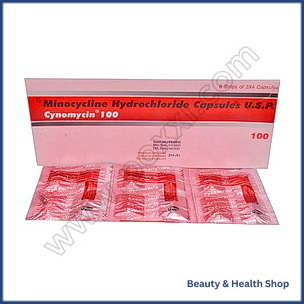
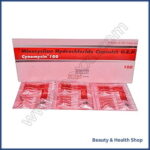
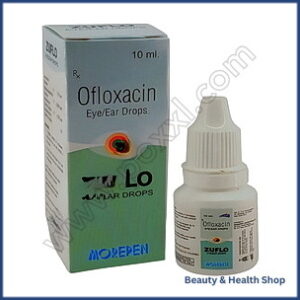
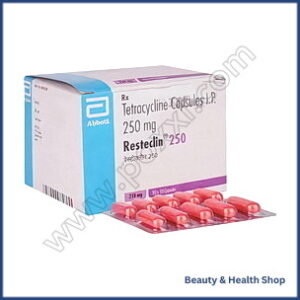
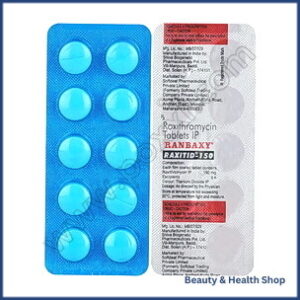
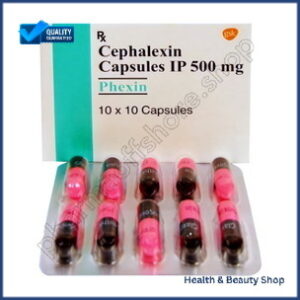
There are no reviews yet.